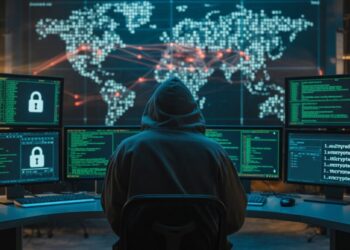Have you ever experienced a “mental block?” Where your brain seems to put its best ideas inside of a locked, impenetrable fortress? A blocked website is the same thing—the information is just beyond reach, and it can cause a lot of problems.
So, you have seen the light, and you know you are missing out on some blocked websites, and you want to break free. But, how do you unblock websites? If you are here, you may have already realized that a Virtual Private Network (VPN) is the best option out there. Other options like Tor, proxy servers, and URL shorteners may work occasionally, but all have an Achilles’ heel. Tor does its job, but it does it very slowly, making it practically unusable for streaming, gaming or downloading large files. Proxy servers are functional but are missing the functionality and privacy needed for a good user experience, plus some blocked websites can still detect your true IP address and block you when you are using a basic proxy. URL shorteners can work for quick one-time use, but certainly can’t be relied on.
So, we are back to a VPN. Why? Let’s take a look.
Why Unblock Websites with a VPN?
We could tell you all of the technical reasons why a VPN unblocks websites like it’s no one’s business. But we’ll make it realistic—what are some of the ways you would use a website unblocker in real life, and how would a VPN save the day?
Picture this—you’re in college, sitting in the most boring class of your educational career. You’re just trying to pass the time, so you decide to get on Instagram. But your browser flashes a message saying “you’re unable to reach this page.” You try Facebook, Twitter, Reddit, etc., and get the same thing. You’ve come face-to-face with blacklisted websites. When a website is blacklisted, it means that the location where you are, in this case, your college campus, has specifically blocked that website. As long as you’re there, you won’t be able to access those sites.
This situation is identical to something someone would experience at work. Anything fun to pass the time could be blocked to try and keep you on task. So, how is a VPN your solution here?
It’s all about appearing somewhere you’re not. After all, location is the issue here. Online, your location is determined by your Internet Protocol (IP) address. If you can change your IP address, the blocked website and the organization (i.e. work or school) will not be able to block you.
When you connect to a VPN, you get to choose a server to connect to. So, if you’re in the United States, you can connect to a United Kingdom server instead. This means your IP address will now translate to that location instead of the location causing the block.
What about a more delicate situation? Unfortunately, internet censorship is a real problem all around the world. Governments and other institutions can limit the sharing and spread of information, news, and more. Some countries have moderate Internet censorship, other countries go as far as to silence full discussions and education on forbidden topics to try and quell unrest or hide information and civil issues from the public for events such as elections, protests, and riots. Even if it is not a country-wide ban, individuals and organizations may carry out censorship for moral, religious, business reasons, or out of fear of some sort of social or legal consequences, or simply a pressure to conform.
In these situations, a website unblocker becomes more important than ever, and privacy is also important. While privacy is always important, staying hidden and anonymous in these situations can be the difference between internet freedom and a permanent ban, or even the risk of physical harm or legal consequences in some extreme cases.
This is where a VPN really takes the cake. A VPN acts like a website unblocker by routing your traffic through an encrypted tunnel, so it can’t be inspected, manipulated, or censored. Encryption is the real difference here. Your data isn’t just hidden, it’s protected behind powerful encryption, making it completely unreadable to anyone other than the desired recipient.
Encryption from a good VPN lets you unblock websites and content while protecting you from hackers. They are also very useful at protecting you on public Wi-Fi networks, which are notoriously risky since it makes it easier than you realize to steal your information. You can avoid all of it with a VPN.
Just Turn on Your VPN and Get Started
Now, to the final question—how do you use a VPN as a website unblocker? Well, with the right VPN, it should be very simple. You need to purchase your plan and download the app. Then, you’ll have to sign in with your newly created plan. Once you do, just turn it on, and select your server location, then you’re good to go!





